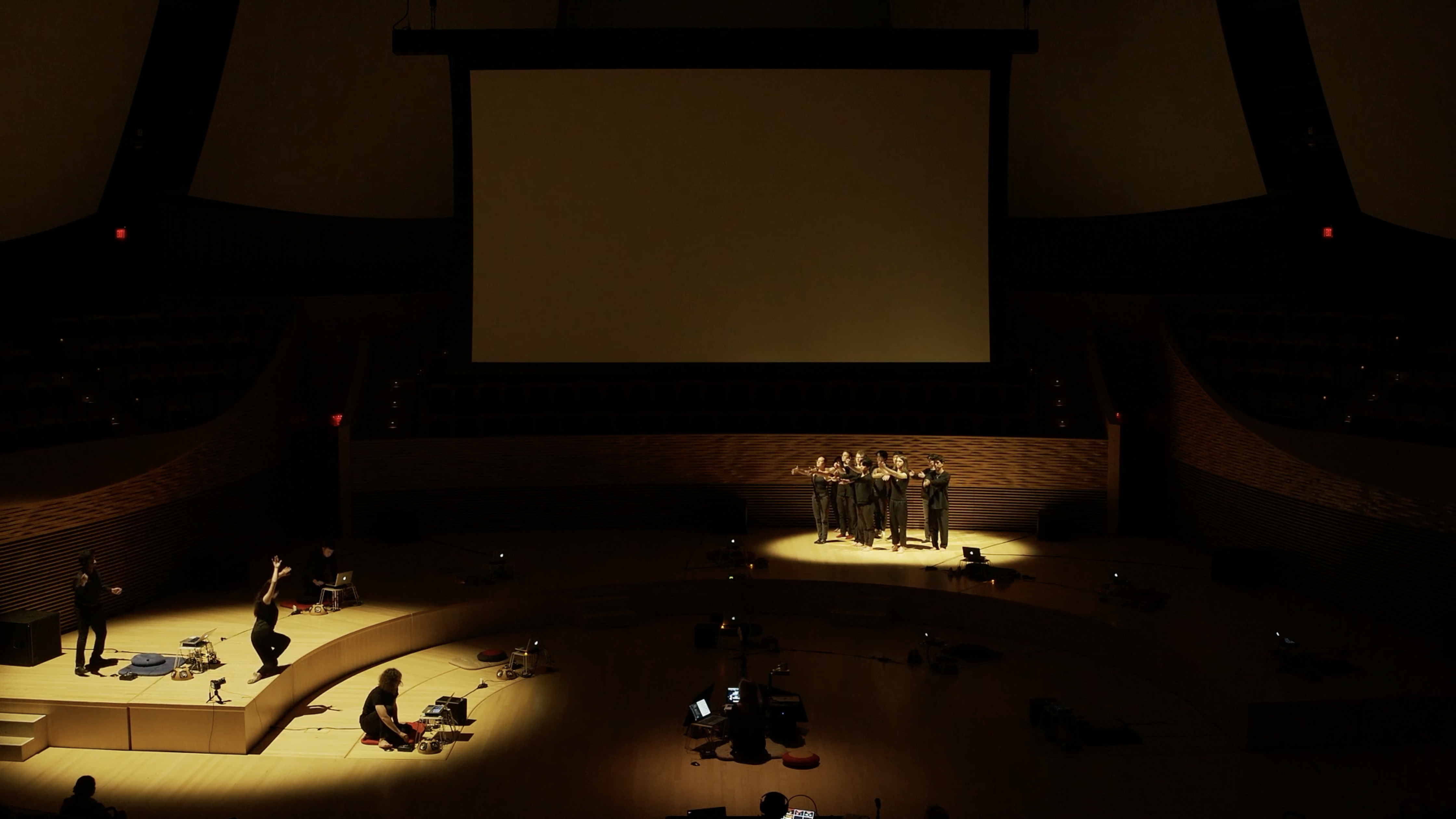Reading Response 5
Principle 5.12
Make a piece, not an instrument or controller.
I think my experience in SLOrk really took me through an intense bootcamp of developing sensible and artful musical interfaces. Specifically, I think principle 5.12 was something that I also realized during my time in SLOrk. I remember for our sound sketches the first week, I had not idea what kind of interaction I wanted to use for it; I distinctly remember the sheer number of various interfaces that I had developed, yet I always thought that I didn't have much to show for it. Then, as I was playing around with granular synthesis of bubbles, I suddenly had the idea of doing a sketch on making dumplings. With this idea elucidated, it sudden became much clearer what I needed to do: all of my interactions that I baked into the sketch were much more intentional, and to quote a previous reading response, "perfect" in the sense that there weren't any superfluous gadgetry. Beyond the first week, this was the approach that I took for all of the pieces in SLOrk. The Icarus Suite I did with Dominic and Daniel also embodied this mindset; we initially only had a collection of fun sounds and interactions, including Dominic's flapping arpeggios, Daniel's spooky escape sequence soundscape, and a couple of my sounds. What really was able to unite all of these seemingly disparate sounds was the fact that we gathered in the listening room one day to write the whole story, place the sounds in each of the acts, and develop them further. Comparing the source material we had, there weren't any revolutionary changes, it was simply the changed mindset of having a concrete plan that gave us a sense of direction. Last but not least, my collaboration with Analiese was another example of this: knowing the theme of the piece, as well as the effect we wanted to have -- an artful audiovisual experience, it was then easy for us to effectively and efficiently create that using the tools we had. It also helped that our skills complemented each other very well in terms of creating this piece. Watching it back in the recording, I couldn't help but think that it ended up even better than I thought it would be. Reflecting on this, having experienced this first-hand, I think this is one of the biggest takeaways: no matter what I design, it's crucial that the bigger picture is established and constantly revisited w.r.t. the things I physically make. From this paradigm, the criteria for "perfection" also arises. Without a goal, there is no guideline on when "there is no longer anything can be taken away."
Figure 1. SLOrk 2023 @ Bing
